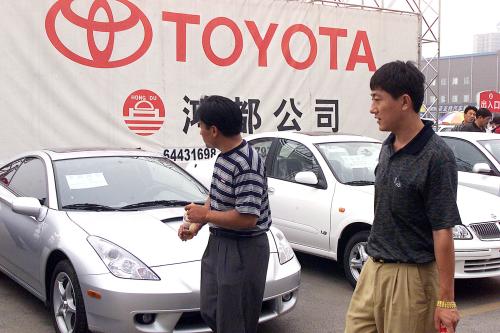The raucous and hard-fought elections on Taiwan raise many uncertainties, but one point is clearer than ever: The key to resolving cross-Straits problems does not lie in weapons, arms build ups, and chest-pounding bluster. The core issue around which to build a solution is the democratic evolution on Taiwan: acknowledging it, nurturing it, preserving it, and integrating its indisputable reality and dynamism into the ultimate settlement of the cross-Straits quandary.
Unfortunately, as obvious as this may seem, the implications of this core issue have hardly begun to surface in any pragmatic policy sense in Taipei, Beijing, and Washington—and especially in the latter two capitals. Even more deplorably, shortsighted political constraints in Taiwan, China, and the United States may strangle the nascent importance of democracy to resolving this conflict before the idea has a chance to flourish and succeed.
Persons seeking a peaceful resolution to the Taiwan issue must recognize the value of democracy to attaining this aim: it does not abandon the “one China” principle; it rightly acknowledges Taiwan’s remarkable political accomplishment and affords the island the greater international stature it deserves; and it sets out a potential model for democratic transition which is in the long-term interests of all parties—including Beijing—to see achieved in China.
The “one China” principle is one of the few major areas of this dispute upon which all parties can officially agree. It has been at the core of formal understandings between the United States and China on this issue for six successive U.S. administrations, and it is likely to remain for the future. It is a principle enshrined in the Taiwanese constitution, and one which the president-elect of Taiwan, Chen Shui-bian, has suggested he is prepared to talk about with China. Most importantly, it is a principle which has preserved stability in the Taiwan Strait, allowing both Taiwan and the mainland to pursue their remarkable political and socio-economic transitions of the past two decades in relative peace.
To be sure, the “one China” principle has had to expand to account for Taipei’s desire for international “space” and the government’s claims of sovereignty over the island, particularly over the past 10 years. But even China has shown a willingness to expand its understanding of “one China,” as long as the principle is not wholly abandoned to the point that Taiwan is permanently separated politically from the mainland. There is ample room within this framework to introduce democracy without fear of its dismantling the “one China” principle, and without its leading to outright independence for Taiwan.
Moreover, making Taiwan’s democratic evolution a core aspect of future discussions for cross-Strait solutions also provides the island with the kind of greater international recognition it so richly deserves and aspires to realize. Washington needs to point far more often to this key political development, how it affects our commitments to Taiwan, and how it promotes U.S. foreign policy goals overall. For its part, Beijing should give up its wrong-headed pretense that the democratization of Taiwan is no more than a ruse to delay reunification, and think harder about how this welcome change on the island can be accepted and integrated into China’s long-term process of social and political reform. In doing so, it pays due respect to Taiwan’s attainments, a much-needed confidence-building measure to support the overall process of reconciliation.
Finally, Taiwan’s democratization is important for what it could symbolize about China’s future. China’s leaders are on record as acknowledging the need for the mainland to pursue further political reforms and democratization, a process already begun at the village level on the mainland. Both the Kuomintang (KMT), the party which on Saturday lost executive power for the first time in Republic of China politics for eight decades, and the Chinese Communist Party were forged on authoritarian, Leninist principles. But over the past 15 years, the KMT found a way to reform and democratize Taiwan while still preserving order and maintaining spectacular economic success. Though certainly difficult for the current Beijing leadership to contemplate, profoundly consequential lessons should be drawn from the Taiwan experience and its meaning to China’s future. At every opportunity, Americans should encourage Chinese interlocutors to think positively about how the democratization of Taiwan can empower reform on the mainland and lay the groundwork for meaningful political harmonization between Beijing and Taipei over the long-term.
Clearly, we cannot have a singular focus on democratization and expect its dynamism and promise alone to resolve cross-Strait problems. All parties should also encourage continued and expanded economic interaction and cultural and academic exchanges. Additionally, Taiwan must preserve the ability to defend itself in the face of Chinese military coercion. But so far, the intelligent and pragmatic integration of the democratic evolution of Taiwan into policy thinking in all three capitals has not really begun. The elections in Taiwan over the weekend make it clearer than ever—now is the time to do so, or a considerable opportunity will be lost.
The Brookings Institution is committed to quality, independence, and impact.
We are supported by a diverse array of funders. In line with our values and policies, each Brookings publication represents the sole views of its author(s).



Commentary
Op-edThe Meaning of “”One China””
March 23, 2000